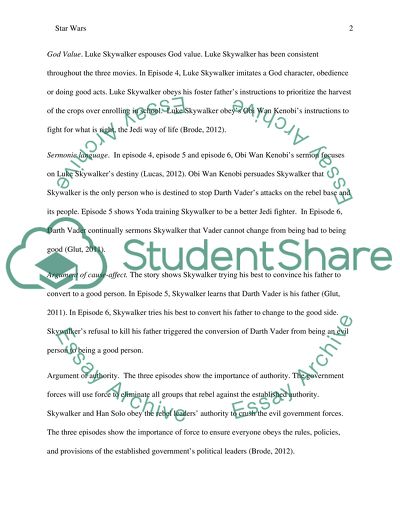Cite this document
(“Rhetorical Critique of Star Wars Episodes IV, V, VI Essay”, n.d.)
Rhetorical Critique of Star Wars Episodes IV, V, VI Essay. Retrieved from https://studentshare.org/visual-arts-film-studies/1643126-rhetorical-critique-of-star-wars-episodes-iv-v-vi
Rhetorical Critique of Star Wars Episodes IV, V, VI Essay. Retrieved from https://studentshare.org/visual-arts-film-studies/1643126-rhetorical-critique-of-star-wars-episodes-iv-v-vi
(Rhetorical Critique of Star Wars Episodes IV, V, VI Essay)
Rhetorical Critique of Star Wars Episodes IV, V, VI Essay. https://studentshare.org/visual-arts-film-studies/1643126-rhetorical-critique-of-star-wars-episodes-iv-v-vi.
Rhetorical Critique of Star Wars Episodes IV, V, VI Essay. https://studentshare.org/visual-arts-film-studies/1643126-rhetorical-critique-of-star-wars-episodes-iv-v-vi.
“Rhetorical Critique of Star Wars Episodes IV, V, VI Essay”, n.d. https://studentshare.org/visual-arts-film-studies/1643126-rhetorical-critique-of-star-wars-episodes-iv-v-vi.


